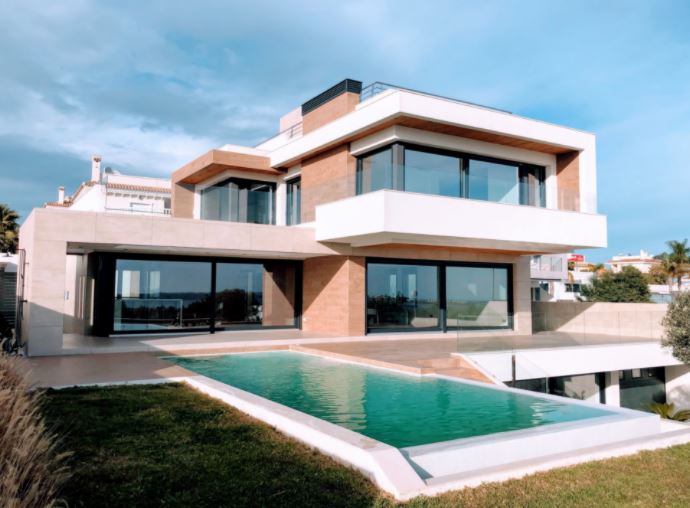
Most people believe that bigger means better. So, everyone thinks about getting larger salaries, houses and even meals.
However, with that said, there are more people now than ever before that are thinking about downsizing.
One of the best things you can do when downsizing is to move into a smaller house.
The typical family home is currently around 2,700 sq. ft. This is a stark comparison to the 1950s where the typical family home was only around 1,000 sq. ft or less.
Now, due to the increase in the cost of living and salaries being more stagnant, more people are thinking about ways that they can make more money. One good solution that many people are adopting is a downsizing of their homes. If you want to sell your home fast look no further.
Benefits
- Increased cash flow
When you have a bigger house, this usually translates into a bigger mortgage. It also means that you have to spend more money maintaining the property as well as utility bills, taxes etc.
- Time
Bigger homes mean more work and more money is needed to properly maintain them. Smaller houses on the other hand take up much less time and work which greatly frees up your time.
- Greater leisure
Since you have more money and time available, you will be able to afford more leisure activities.
- Reduces consumption
Smaller homes need much less heating or cooling. As a result, your electricity consumption would be significantly less and you’d save more money. You’d also be less likely to buy additional items that you don’t need due to less available space.
- Reduced impact on the environment
It takes up a lot less effort and resources to build a smaller house and maintain it.
- Reduced stress
When you have fewer possessions along with more time and money, this often reduces your stress and increases happiness.
- Higher security
A lot of baby boomers who have retired have sold their bigger homes and downsized significantly. This has made bigger homes more available on the market which is now lower priced.
Negatives
Not As Many Possessions
If you move into a smaller home, you would likely have to give away, sell, or just throw out kitchen essentials, books, and furniture. You’d need to go through your attic, basement, and garage and sort through it all, emptying them out. Some individuals wind up with strong emotional attachments to things and are unable to part ways with them.
Less Room For Guests
A smaller home might not be the place where you can throw huge parties anymore. Guests from out-of-town might even need hotel reservations because you don’t have a guest room anymore.
Restricted Space
A smaller home might make you feel cramped since there isn’t as much space to move around. Getting away from other relatives for some privacy is harder to do with fewer rooms available as an escape.
Not As Prestigious
There are times when appearance matters more than even comfort. Some homeowners emphasize how others perceive them. In such cases, smaller homes don’t project the aura of financial well-being and success many crave.
Lifestyle Adaptations
Trading down in home size means changing your lifestyle. If you’ve been a homeowner for a long time, you might be resistant to this change. Sticking with what you know and are familiar with certainly has its comforts.
Market Swings
Downsizing has a financial edge, but it doesn’t really matter whether or not the market is cold, hot, or indifferent. Then again, downsizing when there’s a seller’s market could mean a homeowner has more cash after closing. The flip side is potentially higher sales prices for smaller homes.
For instance, a neutral market might have a current home worth $500,000 offset by $200,000 in mortgage remaining. Without counting any closing costs, that could involve title fees and a commission, the net gain is likely $300,000. That seller might also buy their smaller home for $250,000, leaving $50,000 in their pockets.
In a seller’s market, prices might jump 10 per cent, meaning the current $500,000 home is suddenly worth $550,000. The smaller home might then be bought at $275,000 instead of $250,000. The resulting cash remaining would be $75,000, an increase of $25,000.
Conversely, prices might fall 10 per cent in a buyer’s market. Existing home would sell for only $450,000, but the new small home would also be cheaper. The result would be $25,000 extra cash.
If you want the best possible scenario, you sell your old home in a seller’s market but then buy your smaller home in a buyer’s market. In many cases, sellers can wind up owning a smaller home without any mortgage, and possibly even cash on hand, so choose your markets. They can all work. Just remember that timing the market is risky and hard to do.
Buy First Or Sell First?
Sellers often wonder if they will need two different agents for buying and selling. First of all, consider home pricing and comps. Second, is your home in a community where local agents shun out-of-area agents? That’s not supposed to actually happen, but it really does. If your home can be priced easily and an agent has area contacts, then will it really matter where your agent is located? Agents will sometimes negotiate their commission when handling two transactions at the same time.
It’s usually better to start off selling your current home before buying your next one. Keeping your emotions checked is a good reason why. Then again, some markets make it better to buy before selling. Talk about your strategy with the real estate agent or agents that you chose to work with.




 POSTED BY
POSTED BY 

